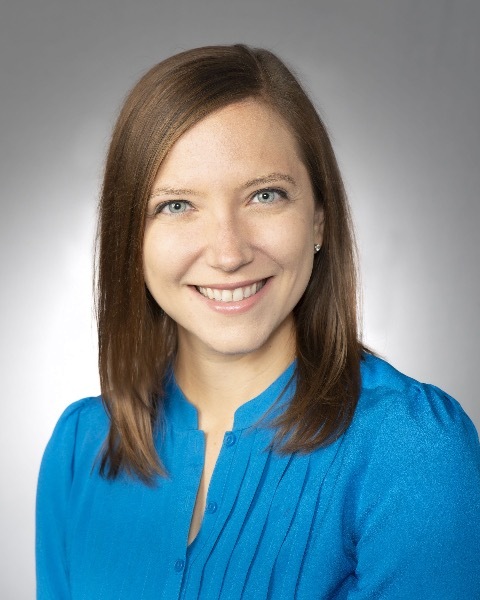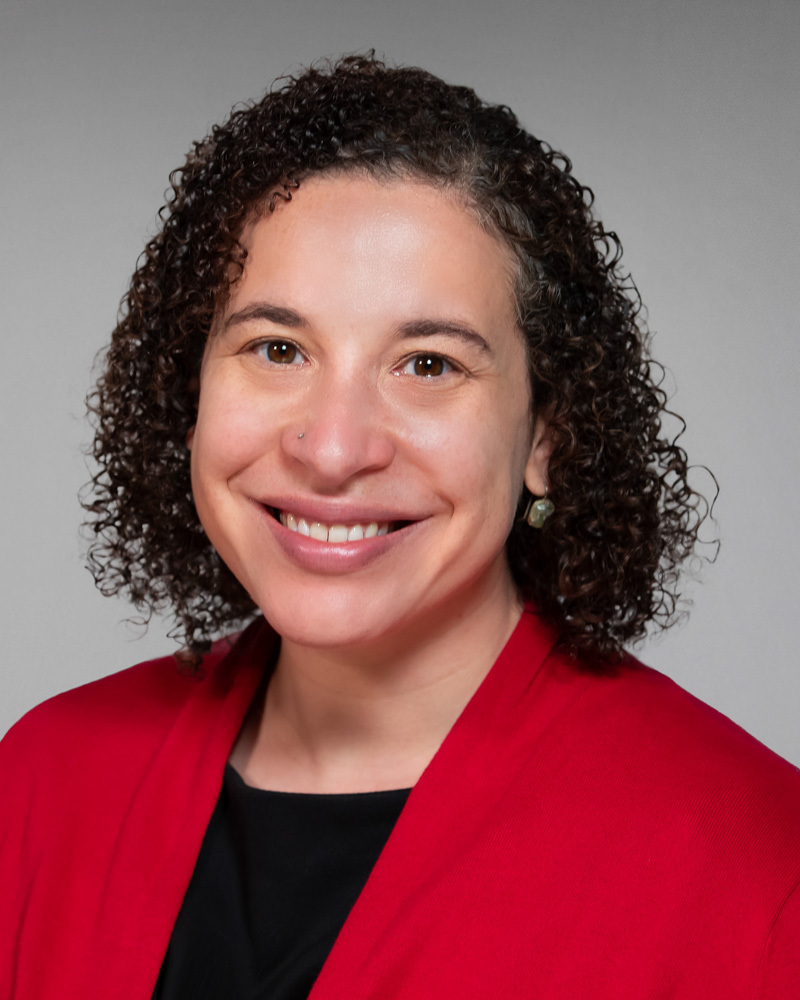
Widening the Net: Engaging Sexual and Gender Minority Youth in Addiction Treatment
-
Register
- Non-Member - $39
- Regular Member - $29
- Retired - $29
- Early Career Physician - $29
- Resident - $19
- Student - $19
- Associate - $19
- ASAM Staff - Free!
- International Member - $29
- Emeritus Member - $29
- Provisional Member - $29
- Fellow Member - $29
- Honorary Member - $29
- CRT Member - $29

Widening the Net: Engaging Sexual and Gender Minority Youth in Addiction Treatment
Recorded: Thursday, March 31, 2022 - Sunday, April 3, 2022
On-Demand Session
Overview
This 1-hour, on-demand session from the ASAM 53rd Annual Conference describes how to create a care environment that is affirming to sexual and gender minority youth, emphasizing the importance of the physical space, the language chosen, the forms distributed, and the staff training provided.
Sexual and gender minority (SGM) youth are at increased risk of substance use and misuse compared to their heterosexual and cisgender peers. The purpose of this session is to explore best practices for providing substance use care that is affirming and sensitive to the needs of SGM youth. Additionally, this session offers a review of the interrelation between substance use and high risk sexual behavior in youth. Participants will come away from this session with greater comfort engaging SGM youth in substance use treatment, integrating substance use treatment and gender-affirming care, and implementing harm reduction strategies specific to the needs of SGM youth, including STI screening, initiation and monitoring of PrEP, and office-based counseling.
The target audience for this Intermediate level session includes physicians, nurse practitioners, physician assistants, other clinicians, researchers, residents, fellows, students, and counselors.
This session addresses the following ACGME Competencies: Patient Care and Procedural Skills, Medical Knowledge, Practice-based Learning and Improvement, Interpersonal and Communication Skills, Professionalism, System Based Practice.
Learning Objectives
Upon completion, learners will be able to:
- Describe the disproportionate effects of substance use on sexual and gender minority youth and factors that may contribute to this disparity, including minority stress and effects of the COVID-19 pandemic.
- Discuss the relationship between substance use and high risk sexual behaviors and apply harm reduction strategies for youth engaging in high risk sexual behavior, including STI screening, PrEP initiation and office based counseling.
- Implement innovative and affirming approaches to addressing substance use for sexual and gender minority youth.
Registration Rates
| Rate Description | Rate |
| ASAM Member | $29 |
| Non-Member | $39 |
| Associate Member | $19 |
| Resident Member* | $19 |
| Student Member* | $19 |
*Residents, Fellows-in-training, Interns, and Students must join ASAM to receive a discounted registration rate. Click here to become an ASAM member. National and Chapter membership dues apply. There is no charge for Students to become a Member, but verification of student status is required.
Membership Question? Call ASAM at 1.301.656.3920, email us, or view the ASAM website for more information.
Refunds & Cancellations
All ASAM e-Learning Center refund requests must be made in writing to education@asam.org within 90 days of purchase. Those requesting refunds for courses that are in progress will receive partial refunds or e-Learning Center credit. Automatic full refunds will be made for any course with a live-course component that has been cancelled.
Registration Deadline: 05/01/2025
Course Instructions
- Click on the Contents tab to watch the on-demand recording.
- Click Complete Post Test to answer multiple choice questions. Participants will have 10 attempts to pass and must answer 2 out of 3 questions correctly.
- Click Complete Evaluation to provide valuable activity feedback. Scroll down on all questions as there may be answer options that expand past the size of the window.
- Click the button Claim Medical Credits in the box titled Claim Credits & Certificate. Choose the type of credit and click submit. Click the button View/Print Certificate to save or print your certificate. You can view/print your certificate at any time by visiting the ASAM eLearning Center, clicking Dashboard, and clicking Transcript/Achievements.
Need Assistance?
For assistance logging in, accessing activities, claiming credit, or for other questions or concerns, please check the FAQ page or e-mail Education@ASAM.org
ASAM is proud to offer Essential Accessibility to ensure our website is accessible and functional for all our learners while providing free assistive technology for people with the widest possible range of abilities.

Paula Goldman
MD
Paula Goldman, MD is a Fellow within the Division of Adolescent and Young Adult Medicine at the UPMC Children’s Hospital of Pittsburgh. She received her MD from the University of Michigan Medical School. She subsequently completed Family Medicine residency at the University of Wisconsin, where her interest in Addiction Medicine solidified. She had the privilege of spending a year working for Indian Health Services at the Passamaquoddy Reservation in Maine and the Navajo Reservation in New Mexico, which provided invaluable experience in addiction-related care in low-resource settings. During her fellowship training, she hopes to develop expertise at the intersection of adolescent medicine and addiction medicine. Her interests include dissemination of substance use disorder treatment to vulnerable adolescents and young adults including justice-involved youth. She is part of the interdisciplinary team that launched the Center for Adolescent and Young Adult Recovery and Empowerment in Pittsburgh, PA, which is embedded within the primary care setting at UPMC’s Center for Adolescent and Young Adult Health.

Megana Dwarakanath
MD, MEd
My name is Megana Dwarakanath, and I am a current second year fellow at UPMC in adolescent medicine. I completed my MD at Rutgers NJMS, residency in New Mexico at UNM, and received an M.Ed at HGSE through the Zuckerman Fellowship. I have been interested in SUD since medical school and particularly its intersection with social justice issues, though my first experience managing patients on suboxone was in my residency clinic--a unique medical home for young people who have left the juvenile justice system. That experience--caring for patients longitudinally, addressing their comprehensive needs, and witnessing them succeed was instrumental in inspiring me to continue this work long term.

Stephanie Klipp
RN, CARN, CAAP, CRS
Stephanie Klipp is a board certified addiction's registered nurse from Pittsburgh, Pennsylvania. She is also certified through the Pennsylvania Certification Board as an Alllied Addiction Practioner (CAAP), and a Certified Recovery Specialist (CRS). Stephanie currently works as a Patient Care Specialist for the city's Syrgine Service Program -Prevention Point Pittsburgh. She is a community adovcate and educator around supporting individuals who use or inject drugs, with a focus on reducing stigma and promoting overall wellness. Stephanie most recently helped to co-found the Pittsburgh Harm Reduction Coalition, and will be working within the community to advocate and elevate the needs and center the voices of indivudals using drugs. She has worked within addiction medicine programs to operationalize inpatient addiction consult services, and outpatient clinics for the treatment of opioid use disorders. She obtained her undergraduate nursing education at Pennsylvania State University, and is currently persuing her FNP in nursing. Stephanie also serves as a member on the Board of Directors of PNAP, the Pennsylvania Nurse Peer Assistance Program. As a preivous graduate of the program, she works to help mentor and adovcate for nurses impacted or suffering from addiction. She educates within various health systems, nurse residency programs, and nursing schools on implemention of harm reduction principles into clinical practice. Stephanie's research interest are are around nursing interventions and education that can be implemented in a health care setting to help create improved outcomes for patients with substance use disorders, across the health care spectrum.

J. Deanna Wilson
MD, MPH
Dr. Wilson is an Assistant Professor of Family Medicine andCommunity Health at the University of Pennsylvania. Shereceived her MD from Yale University School of Medicine and trained in internalmedicine and pediatrics at the Johns Hopkins University School of Medicine. Shecompleted additional subspecialty training in both adolescent and addictionmedicine also at Johns Hopkins. Dr. Wilson's research interests include reducingsubstance use-related health disparities and building equity, with an emphasis oninnovative strategies to treat opioid use disorders in adolescent and adultpopulations. Her work includes integrating harm reduction into primary caresettings, developing low threshold models of care to improve engagement andretention of vulnerable populations, and improving engagement and retention ofadolescents and young adults in OUD treatment.
No relevant financial disclosures
CME, CE, CEU and Other Credit Types

ACCME Accreditation Statement
The American Society of Addiction Medicine is accredited by the Accreditation Council for Continuing Medical Education (ACCME) to provide continuing medical education for physicians.
AMA Credit Designation Statement
The American Society of Addiction Medicine designates this enduring material for a maximum of 1 AMA PRA Category 1 Credits™. Physicians should claim only the credit commensurate with the extent of their participation in the activity.
NAADAC, the Association for Addiction Professionals
This activity has been approved by the American Society of Addiction Medicine, as a NAADAC Approved Education Provider, for educational credits. NAADAC Provider #295, ASAM is responsible for all aspects of the programming.
California Association for Drug/Alcohol Educators (CAADE)
This educational program is approved by CAADE: #CP40 999 1222.
California Association of DUI Treatment Centers (CADTP)
This educational program is approved by CADTP: #205.
California Consortium of Addiction Programs and Professionals (CCAPP)
This educational program is approved by CCAPP: #OS-20-330-1222.
Continuing Education Credits (CEUs)
Non-physician participants will receive a certificate of attendance upon completion of the activity and an online evaluation confirming their participation. Participants should submit his/her certificate of attendance to their professional organization/institute.
Maintenance of Certification (MOC) or Continuing Certification Programs (CCP)
American Board of Medical Specialties (ABMS)
Through the American Board of Medical Specialties (“ABMS”) ongoing commitment to increase access to practice relevant Continuing Certification Activities through the ABMS Continuing Certification Directory, The ASAM 53rd Annual Conference has met the requirements as a MOC Part II CME Activity (apply toward general CME requirement) for the following ABMS Member Boards: Allergy and Immunology, Anesthesiology, Colon and Rectal Surgery, Family Medicine, Medical Genetics and Genomics, Nuclear Medicine, Physical Medicine and Rehabilitation, Plastic Surgery, Preventive Medicine, Psychiatry and Neurology, Radiology, Thoracic Surgery, Urology
American Board of Preventive Medicine (ABPM)
The American Board of Preventive Medicine (ABPM) has approved this activity for a maximum of 1 credit towards ABPM MOC Part II requirements.
American Board of Anesthesiology (ABA)
This activity contributes to the CME component of the American Board of Anesthesiology’s redesigned Maintenance of Certification in Anesthesiology TM (MOCA®) program, known as MOCA 2.0®.
American Board of Pediatrics (ABP)
Successful completion of this CME activity, which includes participation in the activity, with individual assessments of the participant and feedback to the participant, enables the participant to earn a maximum of 1 MOC point in the American Board of Pediatrics’ (ABP) Maintenance of Certification (MOC) program. It is the CME activity provider’s responsibility to submit participant completion information to ACCME for the purpose of granting ABP MOC credit.
American Board of Internal Medicine (ABIM)
Successful completion of this CME activity, which includes participation in the evaluation component, enables the participant to earn up to 1 Medical Knowledge MOC point in the American Board of Internal Medicine’s (ABIM) Maintenance of Certification (MOC) program. Participants will earn MOC points equivalent to the amount of CME credits claimed for the activity. It is the CME activity provider’s responsibility to submit participant completion information to ACCME for the purpose of granting ABIM MOC credits.
American Board of Surgery (ABS)
Successful completion of this CME activity, which includes participation in the evaluation component, enables the learner to earn credit toward the CME and/or Self-Assessment requirements of the American Board of Surgery’s Continuous Certification program. It is the CME activity provider's responsibility to submit learner completion information to ACCME for the purpose of granting ABS credit.
American Board of Psychiatry and Neurology (ABPN)
Successful completion of this CME activity can be used to satisfy the American Board of Psychiatry and Neurology’s (ABPN) CME requirement for Maintenance of Certification program.
American Board of Addiction Medicine (ABAM)
Successful completion of this activity can be used to satisfy the American Board of Addiction Medicine (ABAM) Tmoc credit requirements.
Royal College of Physicians and Surgeons of Canada (RCPSC)
Royal College Fellows can use participation in Accredited Continuing Medical Education to earn Section 3 Credits.
Disclosure Information
In accordance with disclosure policies of ASAM and the ACCME, the effort is made to ensure balance, independence, objectivity, and scientific rigor in all CME activities. These policies include mitigating all possible relevant financial relationships with ineligible companies for the Planning Committees and Presenters. All activity Planning Committee members and Faculty have disclosed relevant financial relationship information. The ASAM CME Committee has reviewed these disclosures and determined that the relationships are not inappropriate in the context of their respective presentations and are not inconsistent with the educational goals and integrity of the activity.

